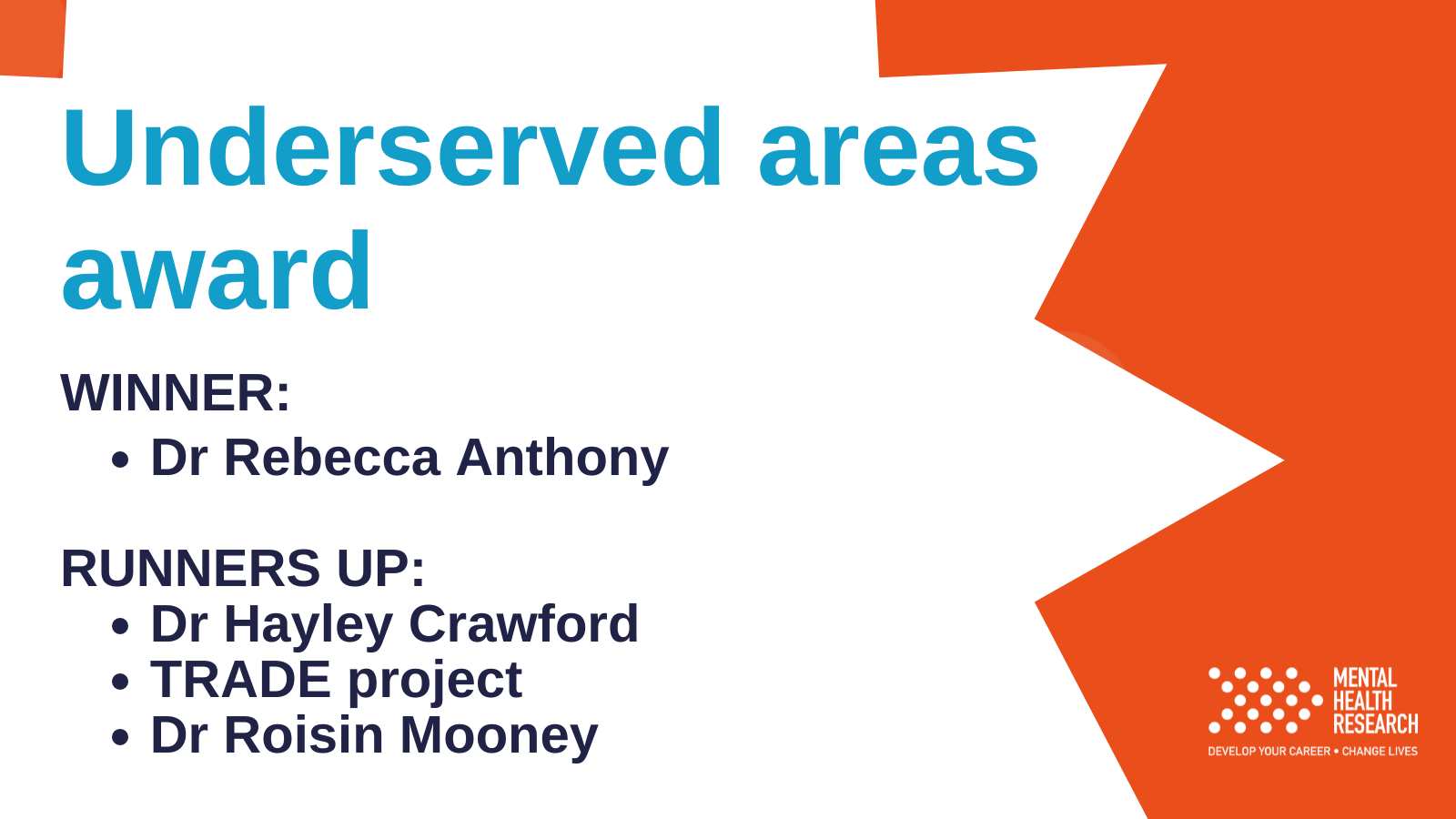
Judges made MHR Incubator awards to talented and committed researchers who are building research in underserved areas. Their award-winning work focuses attention on the experiences of people whose particular circumstances and needs are less well captured in the mainstream of mental health research. The neglected yet important areas they are addressing includes mental health in adoptive families, people with severe intellectual impairments, experiences in racialised groups.
Dr Rebecca Anthony (Cardiff) was the winner in this category. Her work examines the prevalence and needs of mental health problems among children in adoptive families. Judges recognised Rebecca’s extraordinary commitment to her work. Thanks to her ongoing efforts, the needs of adoptive families have been highlighted in government settings, at local practitioner level, and in international conferences.
There were three runners up in this category.
Dr Hayley Crawford’s (Warwick) research involving people with severe intellectual impairments is a group who have been much underserved by research. Anxiety is far more common in genetic rare syndrome groups than in the general population and Hayley’s work has led to new developments in how anxiety can be identified in people who use few or no words. In awarding Hayley’s prize, judges recognised clear evidence of positive impact.
The TRADE project (KCL) looks at understanding the links between parents’ experiences of racial discrimination and child mental health. Given the paucity of mainstream research looking at the familial risk for anxiety and depression, judges recognised TRADE to be an innovative project exploring the experiences of racialised families – groups who have historically been underserved by mental health research efforts.
Dr Roisin Mooney’s (Oxford) work looks at the experiences of racialised populations who have detained under the Mental Health Act. At the moment, their lived experience isn’t taken into account in the design of services. In Roisin’s work, judges saw really innovative creative research methods – photo-voice workshops – which are exemplars of how to better facilitate racialised populations to participate in research. Judges saw CO-PACT is an exemplar of how how lived experience can be embedded at all stages of the project so that the voices of people who’ve been detained can impact mental health policy and practice.
